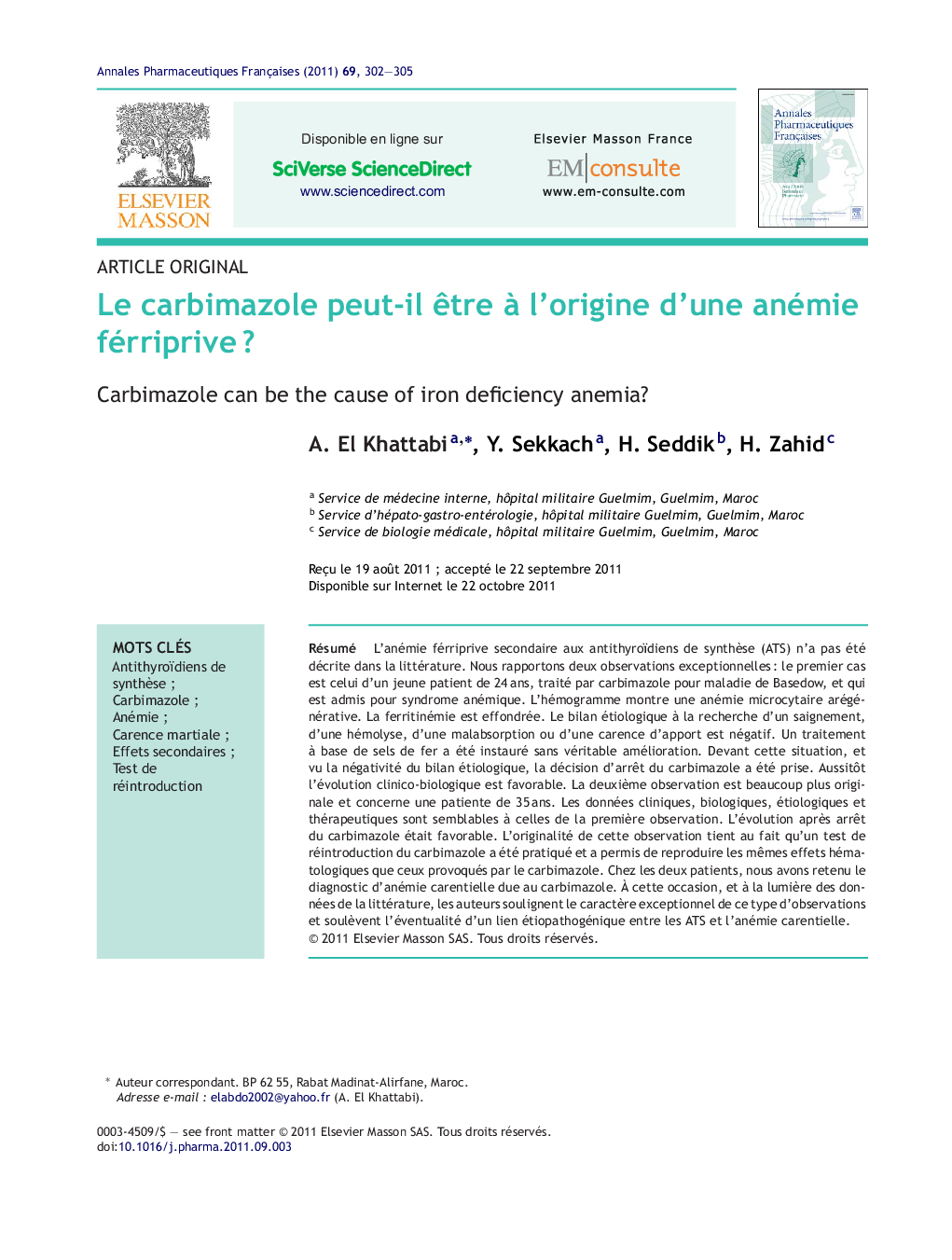| Article ID | Journal | Published Year | Pages | File Type |
|---|---|---|---|---|
| 2478107 | Annales Pharmaceutiques Françaises | 2011 | 4 Pages |
Abstract
Iron deficiency anemia as a hematologic complication of the antithyroid medication (ATS) that has not been already described in the literature. We report on two exceptional cases: the first case concerns a 24 years old man admitted for an anemic syndrome. He was treated with carbimazole for Graves' disease. The blood count showed a non-regenerative microcytic anemia. Serum ferritin was severely decreased. The etiologic searching for bleeding, hemolysis, malabsorption or iron deficiency was negative. Treatment with iron salts was introduced without any real improvement. Given this situation, and given the negativity of the etiologic investigations, the decision to stop carbimazole was taken. Since that, the clinical and biological evolutions have been favorable. The second observation is much more original and concerns a 35 years old woman. The clinical, laboratory, etiological and treatment data are similar to those of the first observation. The evolution after withdrawal of carbimazole was favorable. The originality of this observation is that a reintroduction test of carbimazole was performed and allowed to reproduce the same haematological effects. These findings led us to hold the diagnosis of anaemia due to carbimazole. In this occasion, and in the light of the data in the literature, we underline the exceptional character of these two cases and we raise the possibility of an etiopathogenic link between administration of ATS and the occurrence of anaemia by iron deficiency.
Keywords
Related Topics
Health Sciences
Pharmacology, Toxicology and Pharmaceutical Science
Drug Discovery
Authors
A. El Khattabi, Y. Sekkach, H. Seddik, H. Zahid,
